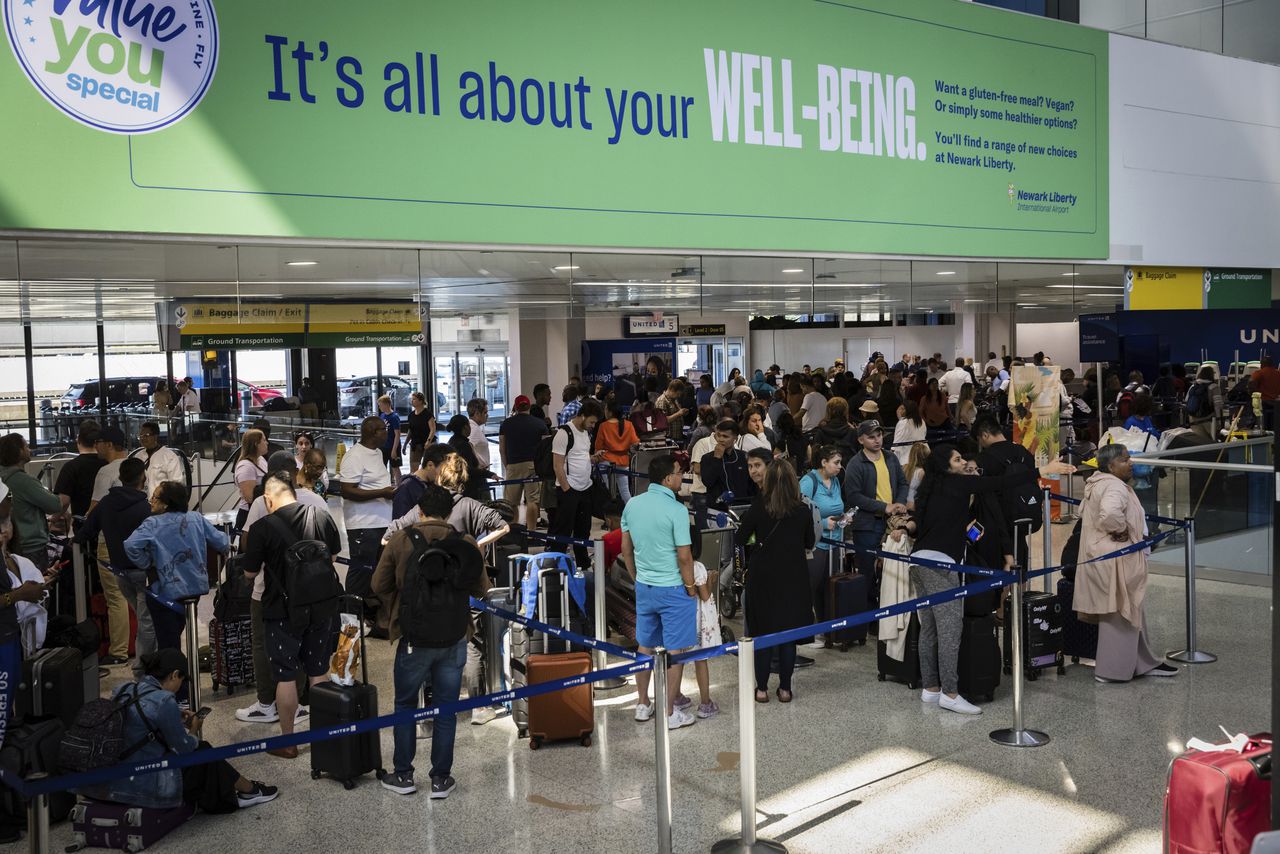Donât blame just bad weather: Flight delays and cancellations underscore airport workersâ need for better pay, health care
With days to go until the long Fourth of July weekend and its expected travel crunch, airlines are experiencing massive delays and outright cancellations of flights. Data from FlightAware, which tracks flights globally, shows more than 2,000 flights departing and arriving in the U.S. delayed, with at least 764 other flights outright canceled on Wednesday alone.
Some passengers have been stranded for days while staff is stretched so thin that workers are sleeping on cots at airports.
Association of Flight Attendants President Sara Nelson shared a photo of the chaos for United Airlines crew, many of whom are unable to be reassigned, putting their work in limbo.
Nelson’s call to action for United stems from an agreement between the airline and the flight attendants union that would allow workers to be paid at a higher tier than normal in order to accommodate the current crunch. The AFA noted that some weather issues made it harder to work through ever-changing flight plans but that doesn’t excuse the fact that “United management has the contractual ability, at their discretion, to incentivize Flight Attendant[s] through the use of White & Purple flag pay.”
What that means, according to the AFA’s United Master Executive Council, is that flight attendants have the opportunity to choose assignments that could see their pay boosted by up to 300% from now until July 6th.
The way United Airlines CEO Scott Kirby has approached airline issues, at least publicly, has been by passing the buck instead of paying its workers. CNBC reports that Kirby put the blame on the weather and the Federal Aviation Administration. “The FAA frankly failed us,” Kirby told staffers, adding that crews were already behind schedule prior to bad weather, which “was further compounded by FAA staffing shortages Sunday evening.”
Air travel woes likely would not get to this point were it not for the lingering effects of the ongoing pandemic and the decisions made by those at the top of the industry — including Kirby, whose airline chose to furlough and layoff tens of thousands of workers as flying came to a halt due to COVID-19. It’s worth noting that, with compensation totaling more than $9.8 million last year, Kirby is the highest-paid CEO in his industry.
As far as FAA issues are concerned, Kirby isn’t the only critic of the agency’s seemingly slow approach to addressing travel issues. The National Air Traffic Controllers Association (NATCA), which represents thousands of air traffic control workers voiced its own frustrations over government inaction.
NATCA recently called for the passage of reauthorization bills in Congress and for additional language that would “require the FAA to hire controller trainees to the maximum pa of the FAA Academy (“maximum hiring”) in addition to experienced controllers” in addition to funding.
There is little the FAA can do to solve the airline industry’s internal issues, however. The top-down issue of airlines refusing to pay its workers impacts not just flight attendants but pilots, many of whom have threatened to strike for better conditions in addition to compensation.
Even airport workers are feeling the pressure of an industry on a fast-paced rebound but without a long-term plan to address conditions that far predate just one bad travel weekend.
At Miami International Airport, one of many such airports impacted by poor conditions and understaffing this week, airport workers with 32BJ SEIU will participating in one of many planned actions over American Airlines’ handling of airport contracts.
American Airlines, yet another carrier stretched to its limits over understaffing and weather issues, hasn’t just failed to solve its own staffing issues between pilots and crew but taken aim at the workers it once contracted out with at airports like Miami’s, including cabin cleaners and baggage handlers. In March, the carrier chose to use its own subsidiary in staffing at the airport, canceling a contract that employed around 100 workers but re-hiring just 15 employees as part of Envoy at a significant pay cut.
Through subcontracting under its own umbrella, American Airlines has been able to pay workers much less than what 32BJ SEIU members and others are calling for under the recently-introduced “Good Jobs for Good Airports Act,” which would transform the lives of airport workers around the country by ensuring higher pay and better benefits.
Speaking at Wednesday’s action, Miami International Airport security officer Joseph Palma detailed the deteriorating conditions he’d been working in since taking the job in 2017. Palma’s pay has failed to keep up with rising costs and health insurance is nonexistent, plunging his family into medical debt. “The life of a Miami airport worker is a life of need,” Palma said.
“We need higher wages. We need paid sick days so we don’t report to work sick and get our coworkers sick. We need vacation days so we can rest and have a full life. We need health insurance so we can take care of ourselves. More than anything, we need respect and a voice on the job so we’re not exploited by greedy companies and airlines.”
